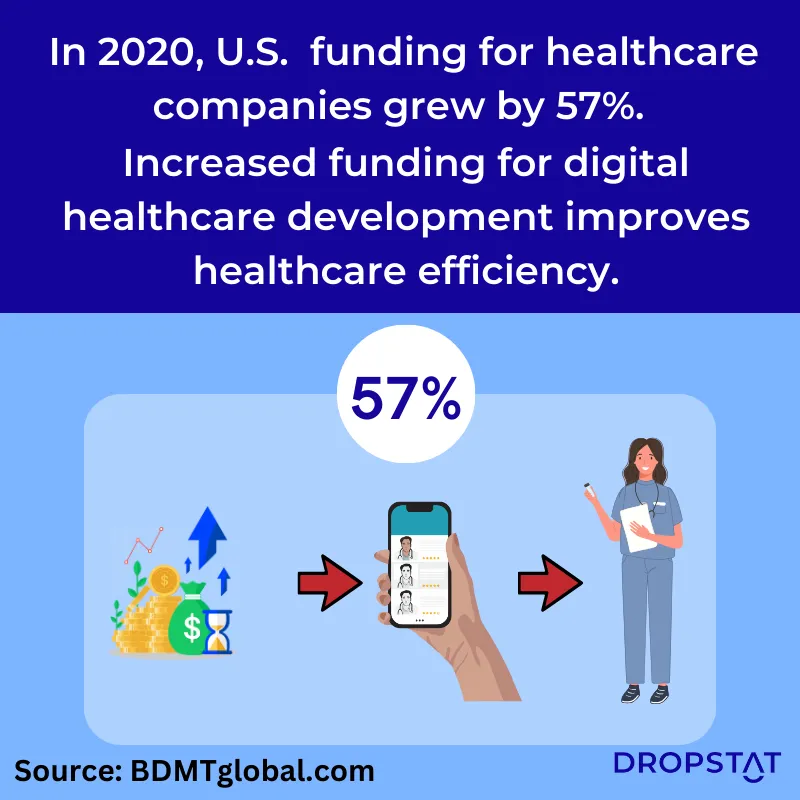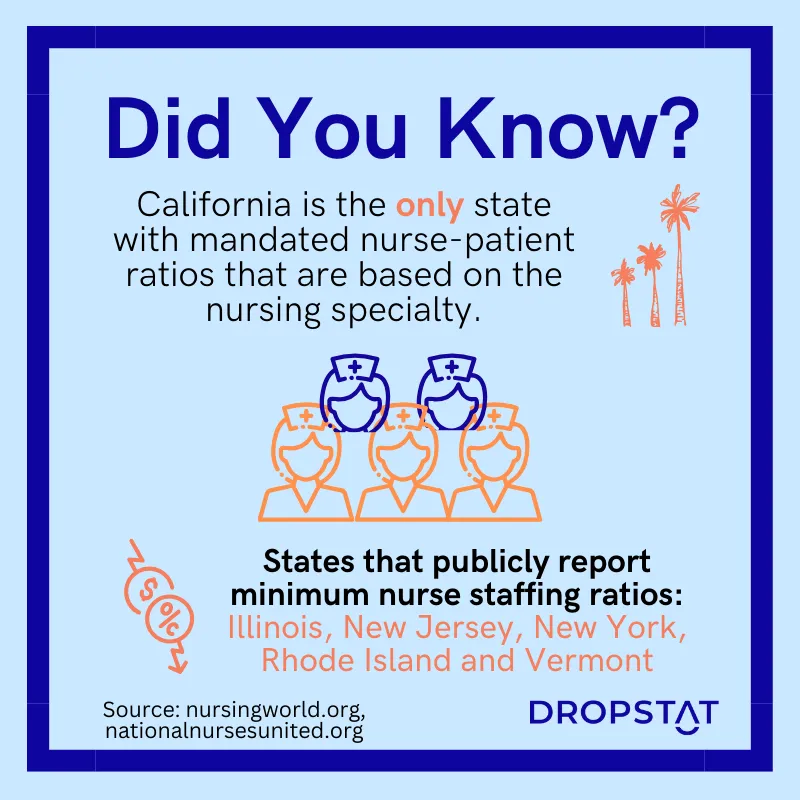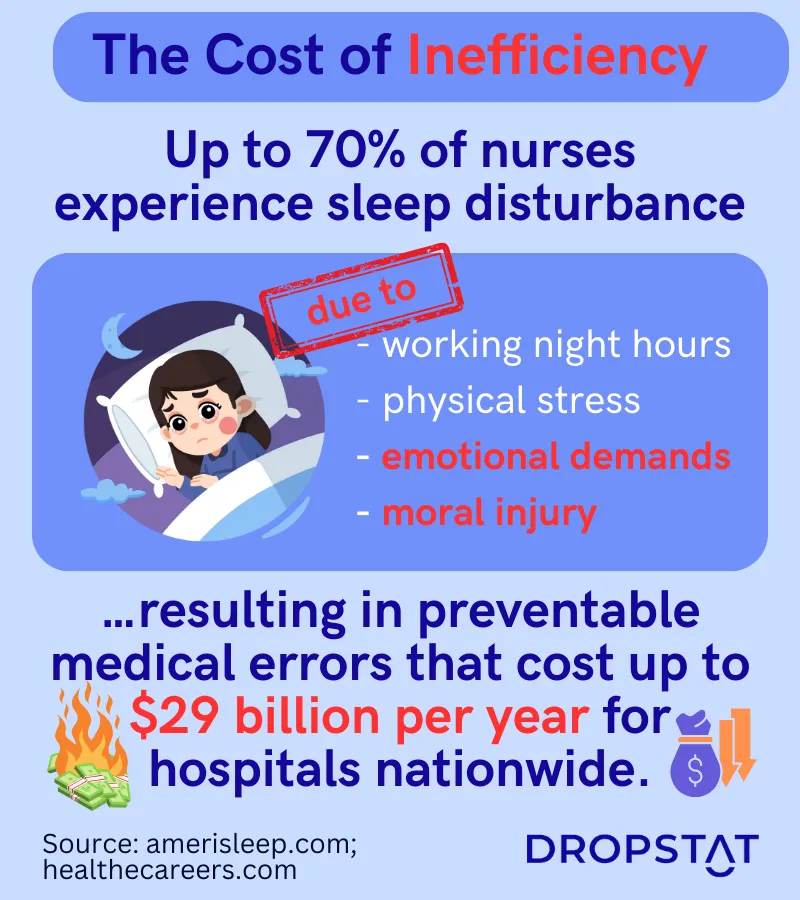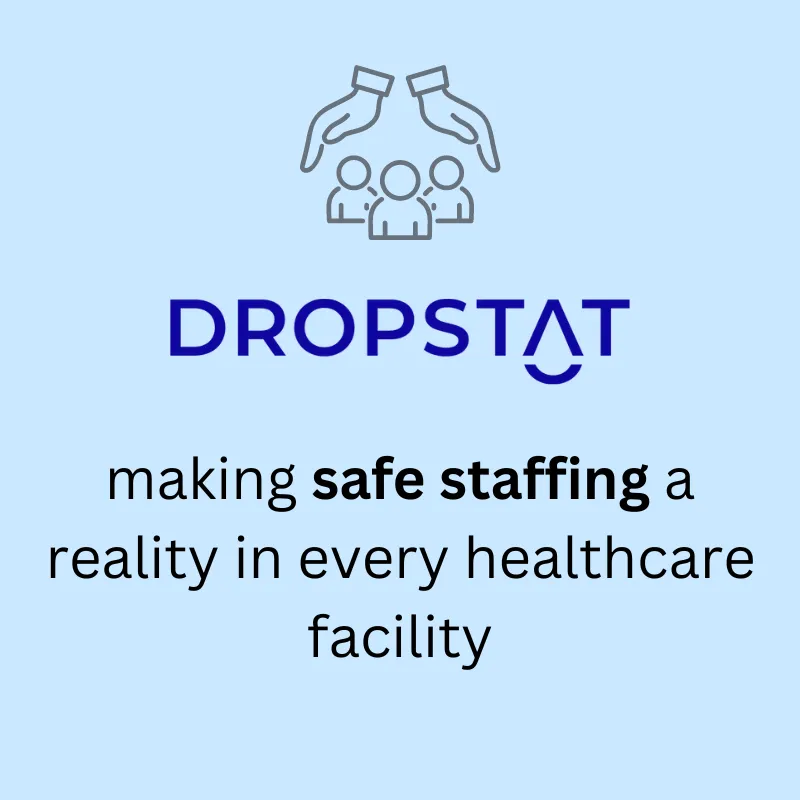Sara Well, founder and CEO of Dropstat, discusses her path from nursing to the healthcare technology startup space and the greatest threats to ensuring healthcare efficiency. Click for episode 50 of the Cache Flow Podcast with Sara’s interview.
How does Dropstat Prioritize Efficiency in Healthcare?
Dropstat’s app increases transparency, predicts staffing needs, and reduces excess spending through AI-based software. The capabilities of Dropstat’s software are so powerful and effective that some of Dropstat’s customers became its investors.
Dropstat’s AI power-driven system predicts staffing needs up to 60 days in advance according to full-time staff and estimates demand for additional staff according to the patient census.

Although Dropstat was initially created for the purpose of process efficiency, it quickly morphed into a tool for cost containment in healthcare. Dropstat integrates with existing products and healthcare staff systems to improve the staffing process and health system performance. One important example is that Dropstat ensures that staff members who are on FMLA, for example, are not scheduled during that time.
One of the most important features of Dropstat’s software is its ability to automatically ensure that temporary staffing and overtime are only being implemented when they are unavoidable, as opposed to using those solutions as a crutch for the inefficiencies in healthcare, as many health systems do.
As an AWS Amazon Accelerator graduate of the Global Workforce Solution Cohort, Dropstat has worked with Amazon to improve the Dropstat user experience in picking up shifts. When the staff take action on the platform, such as picking up shifts or approving staff that are not in overtime, increase points toward Amazon gift cards for both staff members and shift managers. Ultimately, this incentivizes safe staffing and health system efficiency.
Sara’s Path Toward the Healthcare Technology Space
Sara recounts her realization that there was a need for better workforce technology and health system resources within healthcare delivery. She notes the dichotomy that although the hospitals that she worked in had the most advanced surgical equipment and state-of-the-art buildings, as the staffing manager, she was using severely outdated staffing methods that required manually calculating staffing needs and calling individual nurses to fill shifts.
The poor staffing process had a direct impact on the workforce, the greatest labor operating expense for healthcare. There was a significantly greater reliance on expensive staffing methods such as temporary staffing, travel staffing, and overtime, which threatened patient safety and reduced the quality of service delivery. Sara also notes that the healthcare staffing inefficiencies that existed were partly a result of the inability to reach staff from other units — who were cross-trained and could have worked in her unit. This reduced her labor pool by more than 50%, leading to avoidable staffing challenges.
Utilizing temporary and overtime staffing as frequently as many healthcare facilities do will likely improve the short-term challenges of insufficient staffing levels. However, Sara points out that it will likely lead to many other long-term difficulties as a result. Utilizing available resources to meet staffing demands will not improve healthcare systems. However, implementing processes to use the available resources efficiently and effectively while learning how to manage the workforce on hand can lead to long term efficiency in healthcare with better staffing levels.

Sara notes that every patient added to a nurse’s workload above the recognized safe staff ratios increases patient safety risk levels. Unfortunately, due to time-resource pressures, healthcare facilities are quick to assign nurses additional patients without weighing the associated dangers.
Healthcare facilities must find a better option by searching for long-term solutions to retain staff and for the goal of improving patient outcomes. She also adds that healthcare consumers are often unaware of how poor the quality of care they receive is.
“The best thing for our healthcare systems is to be able to autonomously build their own labor pools,” says Sara in response to the over-utilization of temporary staffing. Generating float pools and cross-trained teams to communicate open shift needs is one of the many valuable features that Dropstat provides to implement higher-quality health system practices.
Furthermore, Dropstat prioritizes engagement and staff retention as a method to improve workplace culture, which in turn will increase healthcare efficiency by reducing expensive labor solutions and the cost of turnover, recruitment, and training.
The Need for Health System Efficiency
As Sara mentions, in regard to the challenging cultural environments of healthcare, every aspect of healthcare originates from leadership, which creates a disconnect between the providers of the service and the consumers of the service. Using the clothing analogy, Sara explains that, unlike healthcare, clothing is tangible, allowing people to critique the quality. However, in regard to healthcare service delivery, many executives and leadership teams do not truly understand the quality their own service offers consumers — executives will always be treated as a higher priority, with better care. Therefore, they do not know their own clients’ experiences.
Sara explains, “When we talk about burnout, I want to clarify who we’re losing. We’re not losing people who don’t care. We are losing those who emotionally are giving this job their all – they don’t want to go home anymore with that moral injury of ‘I was given 3 patients to take care of instead of 2 in a critical care setting, and I had to give meds late on this patient, and they ended up having a seizure, or they ended up going into a-fib…'”

When speaking about nurses, Sara explains, “These are people who have signed up to walk through peoples’ nightmares with them…a tough job… they see more death and loss than most active duty combat members.” The need for increasing healthcare efficiency is more crucial now than ever, with the increasing strain on healthcare from the baby boomer generation and a lack of adequate staffing processes. In speaking about the healthcare system we are all facing in the coming years, Sara mentions that “it’s not going to be there for us if we don’t take an active role.”
How Dropstat Can Help Generate Efficiency In Healthcare
Dropstat’s internal staffing calculator utilizes State-mandated staffing requirements and patient acuity data to develop staffing schedules. The same system lets internal staff know about open shifts, prioritizing cross-trained teams and float pools. These practices ultimately improve clinical outcomes for patients and the long-term financial sustainability of the healthcare facility.
Learn more about how we can improve the use of healthcare resources and enhance patient health consequences with Dropstat’s app, which helps generate efficiency in healthcare.






